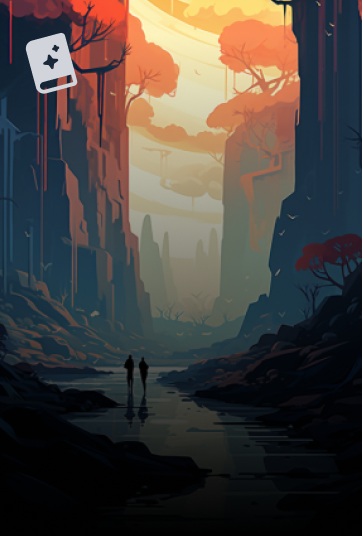
Foundations' Resolve

Foundations' Resolve
Foundations' Resolve
Ratings1
Average rating5

Foundations' Resolve

Foundations' Resolve
Ratings1
Average rating5
Reviews with the most likes.
Overview: An unofficial continuation of Asimov's Robot/Empire/Foundation Future History. This is done with great skill and was a highly rewarding read. More Detailed Review: Isaac Asimov wrote a grand epic history of the future, beginning in the far distant year of 1982 (with the birth of Susan Calvin) and stretching into the distant future through his Robot, Empire and Foundation books. Unfortunately, when he passed on in 1992 his work was unfinished. His estate has authorised additional works, yet none of them move the timeline forward or address the open question explicitly outlined at the end of the final volume.In this book Stephen Collings has attempted to produce an (unofficial) continuation of the story, starting directly after Foundation's Edge, making the Trevize/Pelorat books into a rounded trilogy. These books are rather special to me and I'm a bit protective of them, so here are some searching questions.Does Mr Collings manage to emulate the style? I found his style of writing matched Dr Asimov's so well that I actually forgot that I was reading a work of fanfiction. The obvious format is there, familiar to any Foundation fan: Numbered chapters opening with extracts from the Encyclopedia Galactica starting in mid discussion and ending mid sentence, but that is obviously just the trimmings. Asimov, by the time of Foundation's Edge, had developed a rather economical style of writing. Dr Asimov didn't waste time on Tolkien style descriptions of hillsides or Le Guin style semi-poetry (both excellent in their own right), Asimov instead had perfected a way of writing in which each sentence had a point, it said what happened, moved the plot forward, explained an idea or made you chuckle. Asimov was a craftsman and he got the job done. While, to be frank, that often left you with no idea what a certain place looked like, you knew everything you needed. Most of the time the important thing was a discussion between several characters about some crisis revolving around an esoteric philosophical point. A good part of Asimov's genius was that he could make that riveting. How on earth Mr Collings managed to emulate this, I have no idea, but he actually did! In one scene there is a bunch of people sitting though a history lecture/philosophy discussion and I was on the edge of my seat. That is total Asimov. (This is also probably why Foundation hasn't been a Hollywood Blockbuster yet. Studio Exec: “Galactic Empires! That's cool, like Star Wars! Wait... the hero is an old guy doing math?...oh, that's just the start, what happens next? Star Fleets! Wars! Excellent!...What? They get beaten by a bunch of guys talking economics? Where's the explosions?”)Does the author get the characters right? Yes. I was there with Trevize and Pelorat, the characters so accurately presented that I wasn't asking myself “Is that what Pelorat would say?”, because it totally was Pelorat. Let me stress that while I've eased off in recent years, for a stretch of around fifteen years I made a point of reading every novel and short story in the Future History, in chronological order on a loop. Yes that may be obsessive, but it does let me say with confidence: Mr Collings got the characters right.Did the author get the world right? When it comes to Asimov that question is utterly tied up with the question of if he got the issues right. This is a touchy subject for me as I've read other works based on Asimov's writing that completely dispenses with key social and philosophical points that, for Asimov were the entire point. In my opinion Mr Collings gets this spot on, in fact he explicitly draws on issues right from Asimov's early short stories, right up to his final works and manages to weave them together in a way that in no way interferes with the plot, but rather drives it forward, encouraging the reader to ask deep questions about free will, the nature of humanity and, centrally, the value of human life. This is clearly what Asimov strove for and this is what Mr Collings has managed to achieve.OK if you're an Asimov fan, is there any reason you wouldn't like this? A major deal breaker for you may be that this story counts the so-called Second Foundation Trilogy by Benford, Brin and Bear as cannon. Characters and issues from these books affect this story. If you strongly object to those books, you will find this difficult. If you haven't read them you might be able to enjoy this story, but many parts would probably be very hard to follow, in this case you may want to give [b:Foundation's Fear 566429 Foundation's Fear (Second Foundation Trilogy #1) Gregory Benford https://i.gr-assets.com/images/S/compressed.photo.goodreads.com/books/1388548970l/566429.SY75.jpg 618932] a try. If, like me, you enjoyed these additional books you should love Foundation's Resolve Voltaire, Joan and Lodovik all play a part..I loved this book (can you tell?) however, if I had to find a negative point it would be that, while the ending is deeply satisfying, it did leave very clear room for further stories and, to the best of my knowledge Stephen Collings has not produced any further work, and right now I'm dying for more.I'm now going to say something that's pretty serious to me.To me, this is cannon.